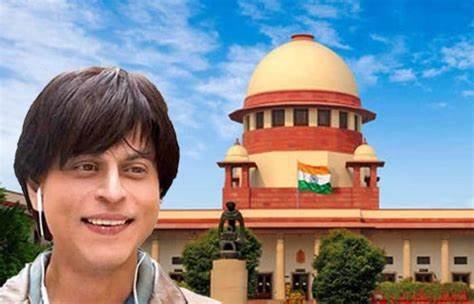In a significant ruling that has reverberated throughout the Indian film industry, the Supreme Court has ordered Yash Raj Films to pay compensation for excluding the popular song “Jabra Fan” from Shah Rukh Khan’s movie “Fan.” The decision marks a victory for artistic integrity and copyright protection, highlighting the importance of honoring agreements and respecting the creative contributions of artists and musicians.
The legal battle surrounding the omission of “Jabra Fan” from the film “Fan” dates back to 2016 when it was discovered that the song, initially recorded for the movie, was not included in the final cut. This decision sparked outrage among fans who had eagerly anticipated the song’s inclusion in the film, given its popularity and widespread acclaim.
At the heart of the controversy was the alleged breach of contract between Yash Raj Films and the composers of the song, Vishal-Shekhar. According to reports, the composers had entered into a contractual agreement with the production house to create and deliver the song for use in the movie. However, despite fulfilling their obligations, the song was inexplicably left out of the final version of the film, leading to a legal dispute over compensation and damages.
The Supreme Court’s ruling in favor of Vishal-Shekhar represents a landmark moment in the ongoing struggle to uphold the rights of artists and creators in the Indian film industry. By holding Yash Raj Films accountable for its failure to honor its contractual commitments, the court has sent a strong message that artistic contributions must be valued and respected, regardless of commercial considerations.
The significance of the ruling extends beyond the specific case of “Jabra Fan” to encompass broader issues of copyright protection and intellectual property rights in the entertainment industry. In an era where content creation and distribution have become increasingly complex and multifaceted, ensuring fair compensation and recognition for artists’ work is paramount to fostering a thriving creative ecosystem.
Moreover, the ruling serves as a reminder of the power dynamics at play within the film industry, where filmmakers and production houses often wield considerable influence over the creative process. In this context, the Supreme Court’s decision to uphold the rights of composers and musicians sets a precedent for greater transparency and accountability in dealings between artists and producers.
The aftermath of the ruling has sparked discussions about the ethical responsibilities of filmmakers and production houses towards the artists and technicians who contribute to their projects. It has prompted calls for greater adherence to contractual agreements and a more equitable distribution of profits and royalties within the industry.
For fans of Shah Rukh Khan and supporters of artistic freedom, the ruling represents a long-awaited vindication of their rights and expectations. “Jabra Fan,” with its catchy lyrics and infectious energy, had captured the hearts of millions of fans worldwide, who had eagerly anticipated its inclusion in the movie “Fan.” The Supreme Court’s decision to rectify this injustice has brought closure to a chapter of disappointment and frustration for fans and artists alike.
Moving forward, the ruling is likely to have far-reaching implications for how filmmakers and production houses approach their relationships with artists and musicians. It underscores the importance of clear communication, mutual respect, and fair compensation in fostering productive collaborations and nurturing a culture of creativity and innovation.
In addition, the Supreme Court’s decision to order Yash Raj Films to pay compensation for excluding “Jabra Fan” from Shah Rukh Khan’s “Fan” marks a watershed moment in the Indian film industry. It reaffirms the rights of artists and creators to be recognized and compensated for their contributions, regardless of commercial considerations. As the industry grapples with the implications of this ruling, it is hoped that it will lead to greater accountability, transparency, and respect for artistic integrity in the years to come.

